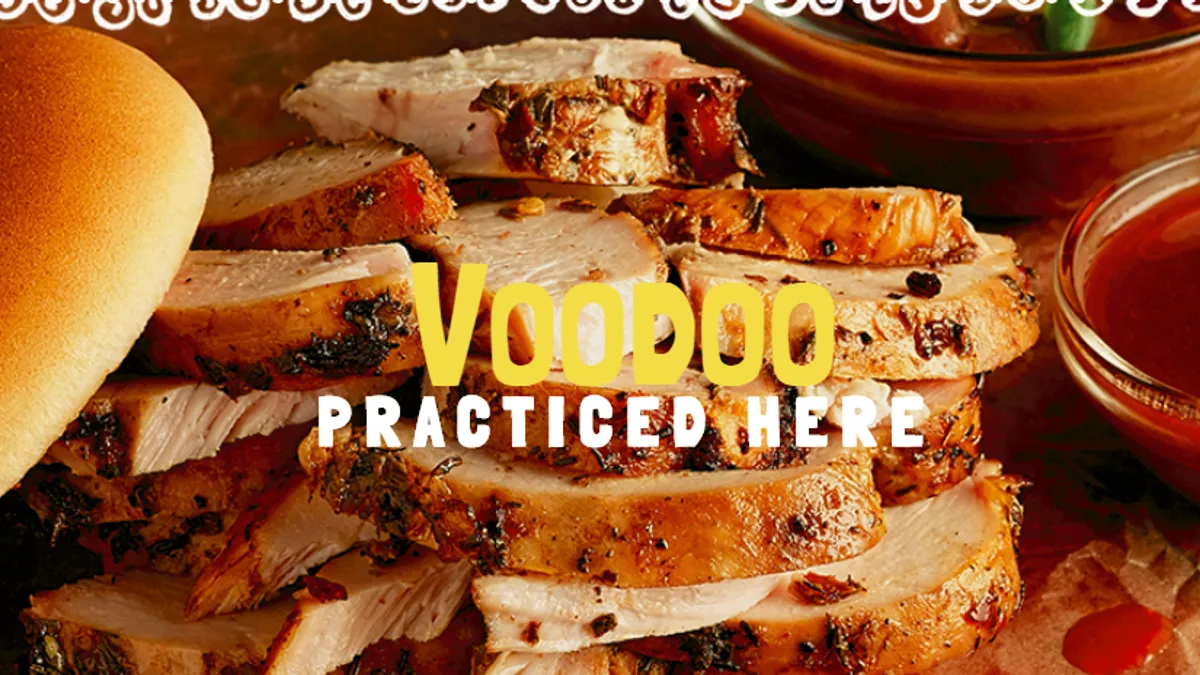Update: VooDoo's legal suit against Punchh has been voluntarily dismissed, according to the copy of a court document provided to Moblie Marketer. The issue has been "resolved amicably," a Punchh spokesperson said.
Brief:
-
VooDoo BBQ Restaurant Group, which operates 12 locations around New Orleans, LA and Pensacola, FL late last month sued Punchh, a developer of mobile customer relationship management software for restaurants, for control of a mobile app and damages exceeding $75,000, according to a filing that was made available to Mobile Marketer by VooDoo's legal representation. VooDoo claims that Punchh violated a contract by refusing to transfer the restaurant chain’s apps to VooDoo as the company hired a new app developer, and removing the VooDoo apps from online stores, among other allegations.
-
VooDoo in 2012 hired Punchh to design, develop and support mobile apps that let customers participate in a rewards and loyalty program, per the complaint. Punchh completed and launched the custom VooDoo mobile apps in 2013. VooDoo alleges the apps never fully delivered on the features or functionality as Punchh had promised during the sales process.
-
VooDoo claims its reputation has been harmed and that it has suffered financial losses because it has been required to deliver free goods and services to consumers who have been unable to use the VooDoo app. The case was filed in the San Jose division of the U.S. District Court for Northern California on Feb. 22, 2018. Punchh did not respond to a request for comment.
Insight:
Unless VooDoo and Punchh settle out of court, a judge and jury will decide on the validity of VooDoo’s claims. However, the case does highlight issues about who owns the digital storefront for the category of white label apps that are developed for brands to publish in an app store or distribute on their own. The transfer of customer data can be a source of conflict between brands and their app contractors.
"In our case, we view Punchh’s conduct as akin to the tactics of an abusive landlord except conducted in the modern digital storefront," said VooDoo's legal representative Peter McMahon in a statement emailed to Mobile Marketer.
The VooDoo complaint highlights the importance of establishing the ownership of consumer data at the outset of working with a white-label app developer. Brands need to maintain control of their customer data to ensure continuity of service when they transfer the responsibilities for an app from one developer to another.
That’s especially true for smaller restaurants that don’t have the financial resources to hire their own app developer and must rely on a white-label app if they want to provide services like mobile ordering, payments and loyalty rewards programs, which are becoming table stakes in the casual restaurant space now that most of the major brands have embraced mobile.










